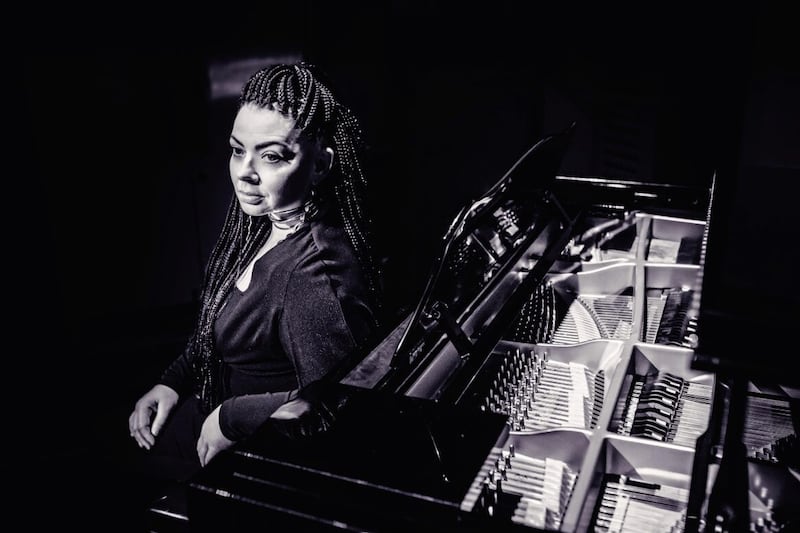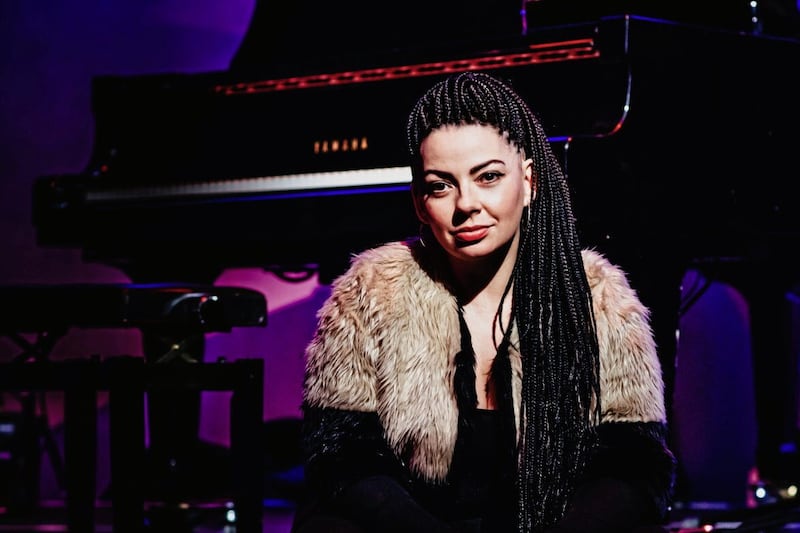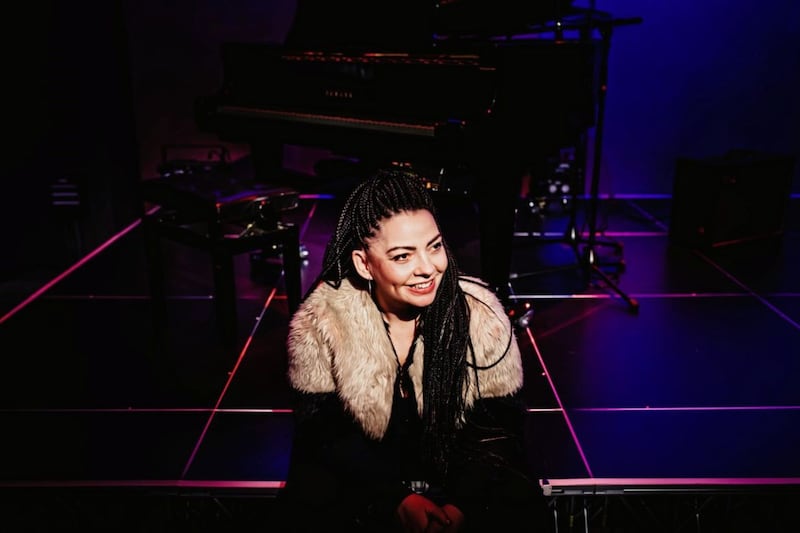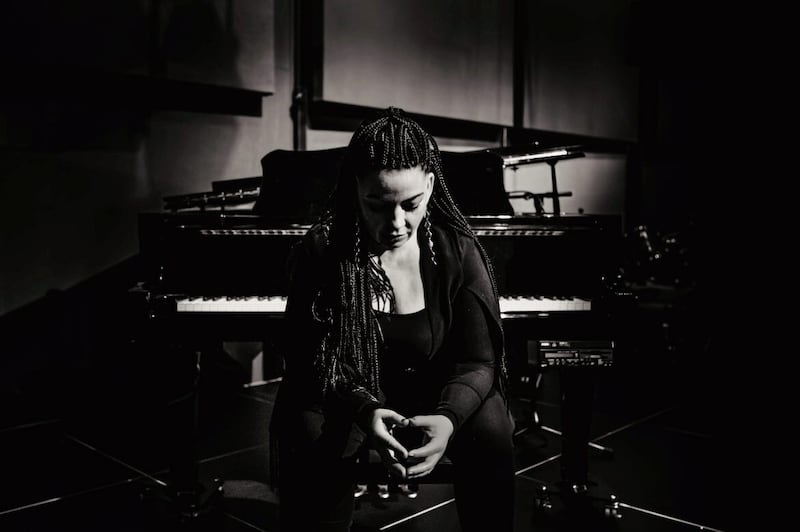
RUTH McGinley well remembers her concert at London's Southbank Centre this year. It was tough as she hadn't given a classical recital for some time, and she had initially turned down the September 8 gig.
Then, when McGinley arrived to choose her grand piano - "They have two or three and you select the one you like," she explains - news came through that Queen Elizabeth had died.
"The manager met me and asked if I'd seen the news. I hadn't as I don't listen to the headlines on the day of a concert," McGinley tells me.
A decision had to be made on whether to cancel or postpone McGinley's recital, and the audience was starting to gather in The Festival Hall.
She recalls the tension: "We looked at the music I was playing – Erik Satie, some Irish airs from my album Aura, and the programme didn't seem disrespectful or hitting the wrong tone.
"So we decided to go ahead, but I didn't say anything or talk between the pieces of music.
"In the end, it became bigger than me and I was able to perform from a very deep place."
At Ruth's request, the management started the concert a quarter of an hour later than scheduled. This, as McGinley says, was "to give people time to absorb the news".
That's the kind of person, and pianist, Ruth McGinley is. Sensitive, empathetic, and utterly emotional.
Discussing the pianists she admires, the artist-in-residence at The MAC in Belfast says that Martha Argerich, the virtuoso who maintains long hair in her 80s and is known for emotionally charged performances, is her favourite.
McGinley admits that her own style of playing has been described as emotional: "I have been called an 'expressively mature' player."
I would even say romantic. Asked about the piano music she relishes, and has missed during the years away from the concert platform, McGinley admits to loving one of the most emotive concertos in the repertoire.
"Rach 2 is my go-to piece." She's referring to the second piano concerto by Rachmaninov, the music used as the swooning soundtrack for the film Brief Encounter. I was lucky enough to hear McGinley play it on my grandfather's piano in the dining room and shan't forget the intensity.
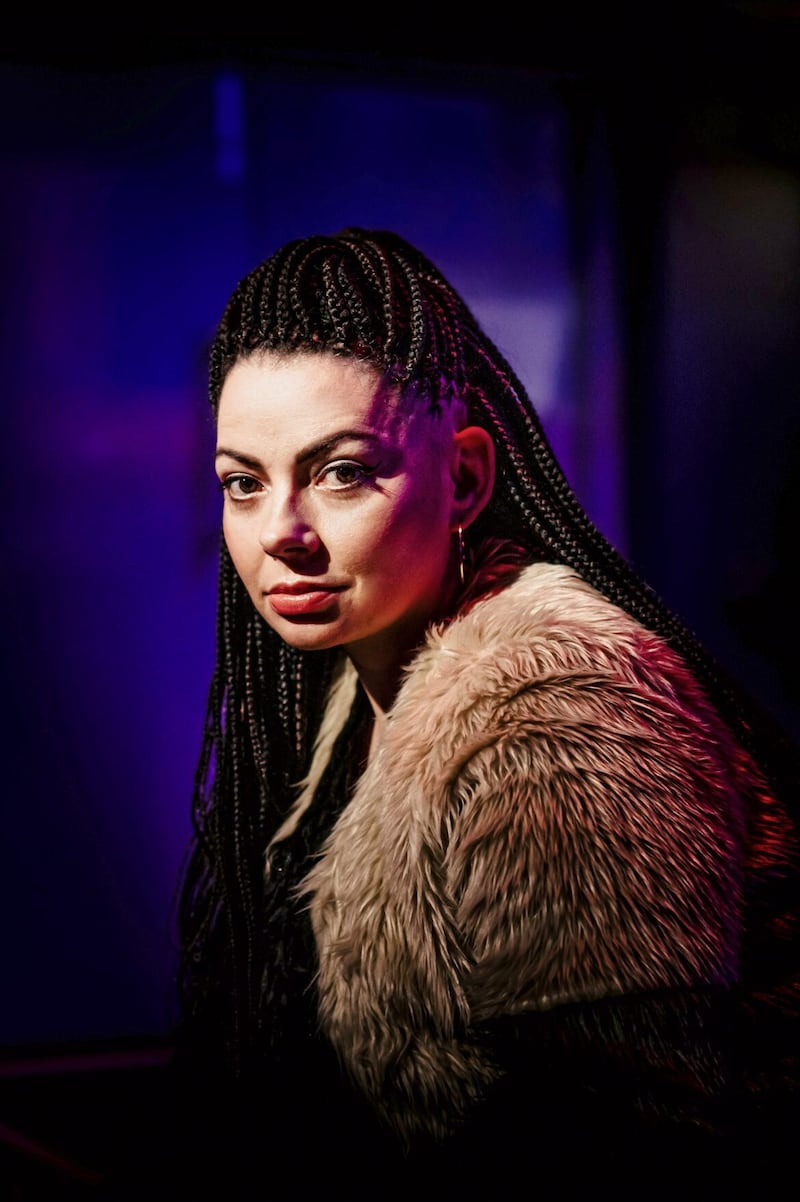
We bat about the notion that the piano shouldn't be as passionate an instrument as it is.
"I tell my students it's a percussive instrument and a question of hammers hitting strings," she explains.
"Somebody once described the piano as a box of diminuendos, and it's difficult to make that phrase, to extend the sound."
What makes the difference, according to Ruth McGinley, is the physicality of the performer and a couple of other techniques.
"It's three things: really hearing the sound sung inside your head; feeling the note right through; and also the physical work."
The McGinley story, and her life to date would make a fascinating biopic, started early. Ruth is the youngest daughter of Ray and Brian, owners of the famous McGinley School of Music and Drama in Derry.
From a very young age, she absorbed piano music. Not only that, McGinley worked out the harmony for herself. "I'd sit at the end of the piano while my mother taught students and would hear my older sisters playing," she says.
She taught herself the scales at two-and-a-half, an incredible feat. McGinley recalls the day her family knew they had a prodigy in the house.
"My granny came in, heard me playing the scale of C major on the piano, said, 'Is that Tanya?'. My mother said 'No, it's Ruth.'
"I said, 'Do you want D or G?' and went through G, D, F#, C# minor. My mother was quite chuffed as she hadn't known I could do it."
Later came scholarships, trips to Dublin for lessons and at 16, she won the BBC Young Musician of the Year title. She then got an agent.
Modestly, McGinley says that in the atmosphere at home, it was tough not to be musically gifted.
"There were pianos everywhere as my father bought, tuned and restored them," she says.
"But our home, one of those tall houses near the university in Derry, was also a bed and breakfast."
The McGinley sisters played piano and string trios, doing Fauré at concerts, also Beethoven, Irish music and lighter material.
"My friendship with Duke Special began when we both taught the performance course at Queen's," she says.
"He said that a performer doesn't come to the stage with his own taste, but also his parents' and grandparents'. For a moment, I wished my parents had listened to more cool, soul music..."
It was an exciting career path, but the young woman also found the demands sometimes overwhelming. She went to London at 18 to study at the Royal Academy of Music.
"That was incredible, but tough. They told us on the first day that instrumentalists apart from pianists should do four to five hours' practice a day; pianists had to do six to eight hours'..."
At some point, McGinley's brilliant career entered a different, minor key. She stopped performing for a while after developing performance anxiety and says now: "It's an emotional journey through your emotions. Why would you do music if it didn't matter?
"I made a choice to bring music back into my life and am so grateful every time I sit down and play to people without the awful feelings, if that doesn't sound too hippy dippy."
Happily, she had her son, Michael, now 22, also musical and working at The MAC.
"He's a creative soul and was exposed to music from before birth, as I remember performing when I was pregnant."
Being a young single mum in Derry wasn't easy but McGinley and her son have a close relationship.
She says that he is a talented guitarist and has introduced her to new genres and they sometimes go to rock concerts together.
McGinley reveals that she has been diagnosed with autism and that this might explain some of her discomfort at the beginning of her career. "I was diagnosed three years ago after someone close to me got a similar diagnosis. It's explained some things, such as not liking over-bright lights in rehearsal rooms. Also being introverted."
But overall McGinley has found it a positive. "For me personally, it's such a gift. It's allowed me to understand myself and my close connection to the piano at a young age, at a human level aside from the career. Also it has made me more accepting."
McGinley works hard as a performer and composer. Recently she played a couple of candlelit concerts, one a tribute, with violinist Joanne Quigley, to Fleetwood Mac in the Ulster Museum.
She also writes music. The first song she co-wrote was the White Ribbon lyric with Duke Special to mark the Canadian charity's work helping women who have been through domestic abuse.
Collaborations are something McGinley enjoys. She is planning to link up with acclaimed TV and film music writer Sheridan Tongue.
"I actually worked with him not that long ago in his London studio. We were producing a different kind of sound and Sheridan was on synth."
She is pretty eclectic and enjoyed working with Neil Martin on their newly released album, Aura, containing his affecting arrangements of Irish airs, including a stunning version of Danny Boy.
"You couldn't leave that out, could you?" As Glenn Patterson noted when it was played at the album launch during the Belfast International Arts Festival, you felt you were hearing it for the first time.
We're talking as the arts are under fresh attack in England, with music losing Arts Council funding. Does she feel concerned? "Absolutely, I think the arts need more support," she tells me.
"They're so important to all areas of life and need to be presented to young children so they can express themselves.
"But the people making the decisions don't understand that, as everybody, including violinist Nicola Benedetti has pointed out."
McGinley says that her residency at The MAC has provided her with a creative space, and a piano: "It's given me confidence, I feel like an artist."
They hope to have a celebratory spring concert to mark the end of her residency. It will be special.


